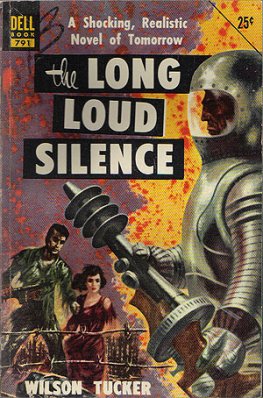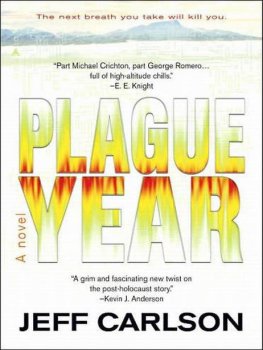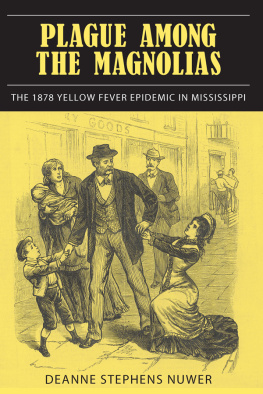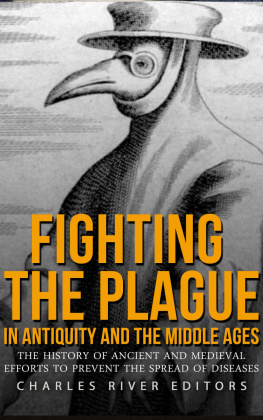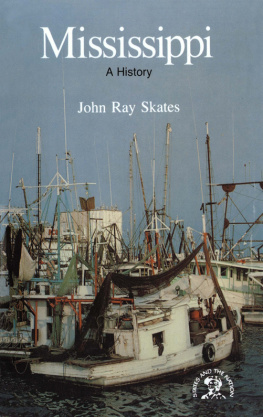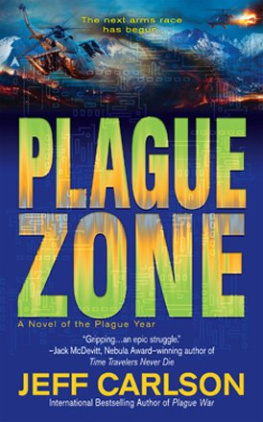Wilson Tucker - The Long Loud Silence
Here you can read online Wilson Tucker - The Long Loud Silence full text of the book (entire story) in english for free. Download pdf and epub, get meaning, cover and reviews about this ebook. City: New York, year: 1952, publisher: Rinehart, genre: Science fiction. Description of the work, (preface) as well as reviews are available. Best literature library LitArk.com created for fans of good reading and offers a wide selection of genres:
Romance novel
Science fiction
Adventure
Detective
Science
History
Home and family
Prose
Art
Politics
Computer
Non-fiction
Religion
Business
Children
Humor
Choose a favorite category and find really read worthwhile books. Enjoy immersion in the world of imagination, feel the emotions of the characters or learn something new for yourself, make an fascinating discovery.
- Book:The Long Loud Silence
- Author:
- Publisher:Rinehart
- Genre:
- Year:1952
- City:New York
- ISBN:0-89968-375-4
- Rating:5 / 5
- Favourites:Add to favourites
- Your mark:
- 100
- 1
- 2
- 3
- 4
- 5
The Long Loud Silence: summary, description and annotation
We offer to read an annotation, description, summary or preface (depends on what the author of the book "The Long Loud Silence" wrote himself). If you haven't found the necessary information about the book — write in the comments, we will try to find it.
The Long Loud Silence — read online for free the complete book (whole text) full work
Below is the text of the book, divided by pages. System saving the place of the last page read, allows you to conveniently read the book "The Long Loud Silence" online for free, without having to search again every time where you left off. Put a bookmark, and you can go to the page where you finished reading at any time.
Font size:
Interval:
Bookmark:
Wilson Tucker
THE LONG LOUD SILENCE
1
GARY hugged the shadows along the shore and waited for the sound of the shot, for the sharp crack of a carbine. The old woman had been a fool to think she could sneak across the bridge, either starved to the point of desperation or a fool. The darkness of the night couldn't hide her, not any more, not with the troops guarding the other end of the bridge with infrared lamps and sniperscopes on their rifles.
This was the only bridge left intact along a six or seven hundred mile stretch of the Mississippi, and American troops would be concentrated in strength on the other end. The old woman had no more chance of slipping across to the Iowa shore than a snowball in a cyclotron.
Gary crawled around a concrete abutment and waited. He was careful not to show his body on the roadway, not to cross to the other side of the two-lane bridge. He was too far away from the troops to be in real danger, but some gun-happy soldier just might catch him in his 'scope and fire.
The old woman didn't know the army, didn't know their equipment as he did. In her foolish, hungry mind she must have thought she could cross over under cover of darkness. She should have known better; she should have known what to expect after a year of it. Or perhaps she no longer cared. The old woman surely knew she couldn't live to reach the other side. No one from the contaminated area crossed the Mississippi and lived more than a few seconds, a few minutes. If you were among the lucky millions living in the western two-thirds of the nation, you gave thanks to your god. But if you were among the unlucky thousands still struggling for an existence east of the river, you remained there until you died. There was no other choice, no other future.
Stay where you were and die slowly. Make an attempt to reach the clean, unbombed country west of the Mississippi and die quickly under the sights of a carbine. The trooper's heart might not be in it he might hesitate the fraction of a second, but you'd die. No contamination cases wanted.
The rifle cracked in the blackness.
Gary lay still, waiting. There was no other sound for long minutes. He knew the routine, had watched it often in the daylight. Some soldier garbed in a white radiation suit would walk out onto the bridge, move the body with a toe of his boot, searching for a spark of life. If there was still movement he would put a pistol shot through her head. Finally he would pick up the body and hurl it over the guardrail.
He seemed to hear a faint splash. The wind was in the wrong direction and he couldn't be sure, but the hungry old woman was undoubtedly floating down stream by now.
He crawled backward off the bridge approach and sought the sanctuary of a near-by field, seeking out the hollow depression where he had been lying when the woman passed him a half hour before. Curiosity had made him follow her, the morbid curiosity of an onlooker who knows the game will end in disaster. She had been carrying no food, he saw that in his first swift scrutiny; had she been carrying anything to eat he would have forcibly taken it from her. But her arms had been bare and there were no bulges to her pockets. So he had let her go to the bridge, silently following for no real reason.
He had known what would happen to her, and surely she did. In all likelihood she no longer cared. You get so old, you grow so hungry and finally you seek a way out. The bridge was always a way out. Or downstream where the bridges had been dynamited, a rowboat. The troops were continuously on the prowl and the river watch never ended.
Gary knew there were many thousands of them, a large portion of what remained of the United States Army, stationed all along the western bank of the Mississippi, all the way from the delta northward to Lake Winnibigoshish in Minnesota, and from that point still northward overland to Lake Winnipeg in Manitoba. Still north of that body of water, the Mounted Patrol or the terrain stopped you.
He could have been among those lucky troops on the other side of the river, the safe side. If he hadn't gotten blind drunk a year ago. Hadn't waked up in that hotel.
Corporal Russell Gary, with a Fifth Army patch on his shoulder and nothing more strenuous than recruiting duty in downstate Illinois. Veteran of the Salerno campaign he lasted five days on the beach before shrapnel pushed him off; veteran of the French and German thrusts he was promoted to a tech-sergeancy in the early days of the Normandy invasion and busted again before he reached the Rhine. Experienced and unscrupulous black-marketeer, junior grade; turned a tidy sum dealing in military gasoline, rations, soap, foodstuffs. He elected to stay in the army after the war because he had no home to speak of, and on his thirtieth birthday he was celebrating ten years of khaki with a monumental binge.
He figured the army owed him a year's pay.
When he woke up he was on the wrong side of the river, the bombed and contaminated side
2
CORPORAL GARY sneezed and opened his eyes.
The dirty wallpaper only half clinging to the ceiling seemed ready to come loose and drop on him at any moment. He sneezed again and rolled his eyes to see the equally sad paper peeling from the side walls. The layer peeling off wore faded pink roses and below that was another of dirty blue feathers. A battered old telephone hung on the wall near the door, screwed to the cracking plaster. His rumpled trousers were on the floor beside the bed.
Mother of Moses! the corporal complained, another stinking firetrap.
He fought away a nagging ache in his back and a dull pain in his head to sit up. The movement sent a fine cloud of dust flying, and he sneezed again. Instinctively he reached under the pillow for his wallet and dislodged a whisky bottle. Savagely throwing the pillow and the bottle across the room, he snatched up his trousers from the floor and searched the pockets. His wallet was tucked in one of them, empty.
The corporal shouted one word and hurled the wallet after the pillow and the bottle.
Swinging his legs to the floor, he swore loudly when his naked toes made contact rather violently with another bottle. Gary peered down at it, was vaguely disappointed to find it empty, and saw still another one lying part way under the bed.
That, he said to the dirty carpet, must have been one hell of a toot!
The room contained a toilet and a wash basin in one corner, half concealed behind a wooden screen. Another empty floated in the stool. A thin layer of dust and powdered plaster lay over every surface. Gary twisted the single tap jutting out over the basin but no water came out. He repeated the single, shouted word with added emphasis and stalked across the room to the ancient wall telephone.
Hey, down there! What the hell goes on here? I want some water.
The instrument did not answer him.
Hell of a note, he complained, and let the earpiece bang against the wall. Behind the wallpaper some loose plaster dribbled down. Hell of a note.
He stopped to survey the room. Except for the dust it was no different from a dozen other cheap hotels he had previously frequented for one purpose or another. The room hadn't been cleaned for a week and hell, he hadn't been sleeping that long. One or two days was the limit on this sort of thing. Say two days and that was stretching it. He shoved a bottle with his toe and tried to recall events. Quite plainly he hadn't been miserly with the liquor he must have pitched a king-sized bitch. Ten years in the damned army, thirty years old and still reasonably healthy, and if that didn't call for a birthday celebration, nothing did. So all right, he had shot the works. But he couldn't have been out for more than two days.
Somebody would have missed him by now, and he'd be on the carpet for sure.
Font size:
Interval:
Bookmark:
Similar books «The Long Loud Silence»
Look at similar books to The Long Loud Silence. We have selected literature similar in name and meaning in the hope of providing readers with more options to find new, interesting, not yet read works.
Discussion, reviews of the book The Long Loud Silence and just readers' own opinions. Leave your comments, write what you think about the work, its meaning or the main characters. Specify what exactly you liked and what you didn't like, and why you think so.

